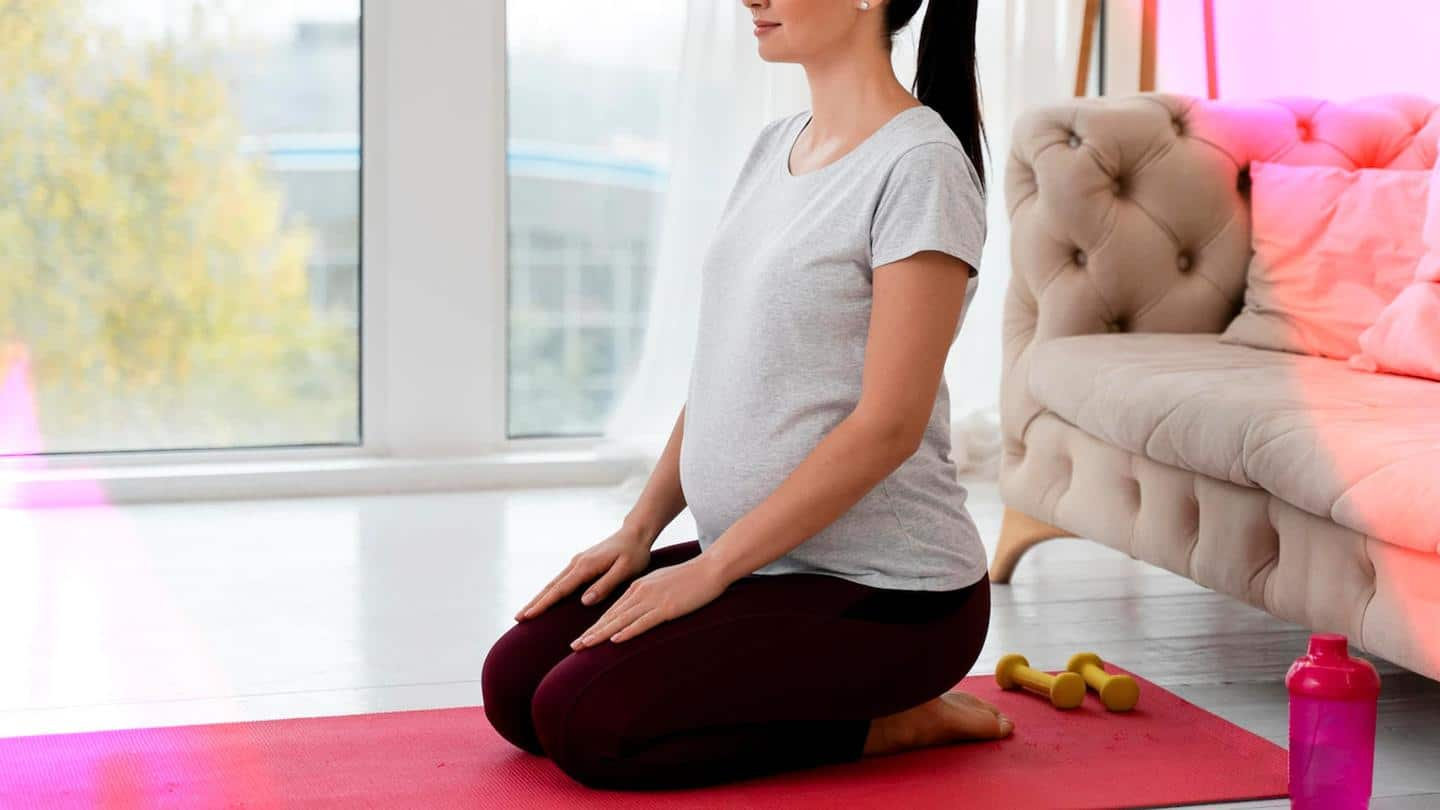
Benefits of prenatal fitness: Why you should exercise when pregnant
What's the story
While exercise is generally good for your health, it is more so during pregnancy, say doctors.
Although one prefers to relax, sitting idle and relaxing can lead to lethargy and back pain.
If it is not a high-risk pregnancy, 20 minutes of daily workout is safe for both mother and the fetus.
Here are some benefits of prenatal fitness.
Context
Here is what our expert says
Regular mild to moderate exercise is encouraged during pregnancy and has shown to reduce pregnancy-related complications such as gestational diabetes and preeclampsia.
These include brisk walking, yoga, swimming, strength training, and pilates.
Tennis star Serena Williams continued to play and win titles during her pregnancy. But before embarking on any strenuous exercise regimen it is very important to consult with the treating doctor.
Metabolic health
Improves metabolic function of the fetus
Dr. Pachouri, Nutrition & Fitness - Advance Plus Coach, Fittr, shares some of the benefits of exercising for prenatal fitness.
"A new study has demonstrated that physical exercise by the mother during pregnancy induces the placenta to secrete the key protein SOD3. This lowers the risk of diabetes for the fetus and improves its metabolic health," explained Dr. Pachouri.
Faster recovery
Reduces risk of pregnancy complications
According to studies, women who work out during pregnancy have lower incidences of gestational diabetes, cesarean birth, excessive weight gain, and preterm birth, and higher incidences of natural birth, control of gestational diabetes, and a faster recovery post-delivery.
Exercising regularly also helps you feel more active and improves the quality of sleep significantly, says Dr. Pachouri.
Exercising can also reduce constipation, bloating, and swelling.
Blood pressure
Keeps your blood pressure in check
Working out strengthens the heart and blood vessels and prepares your body to tackle the upcoming physical challenge, i.e., delivery.
Blood pressure occasionally rises during pregnancy, but a sharp increase can indicate preeclampsia.
Staying active regularly has been found to keep the blood pressure in check during this phase.
However, since your blood pressure drops in the second trimester, avoid sudden changes of position.
Postpartum depression
Working out can uplift your mood
As per recent research, one in every seven women develops postpartum depression within a year of childbirth, says Dr. Pachouri.
Maintaining a healthy gestational weight gain during pregnancy increases overall strength to help women get through birth and reduces the risk of developing postpartum depression.
Exercising also helps maintain emotional and physical well-being by releasing endorphins, which help relieve pain and stress.
Pelvic ache
Moderate exercise can ease back and pelvic pain
A growing baby bump puts extra strain on the lower half of the body, causing lower back pain and pelvic ache.
Strengthening your abs may result in lessening this pain during late pregnancy. However, heavy exercise might aggravate the pain.
Activities and sports that pose a high risk of falling should be avoided.
Get your doctor's approval, and let's get moving, baby!
On exercise
Before changing the exercise pattern, consult your gynecologist: Dr. Pachouri
"You can continue any activity you performed before conception as long as the intensity and frequency are moderated," opines Dr. Sushma Pachouri.
"Because of morphological, anatomical, and physiological changes during pregnancy, certain modifications are necessary. Before making any changes in the exercise pattern, consult your gynecologist," says Dr. Pachouri.